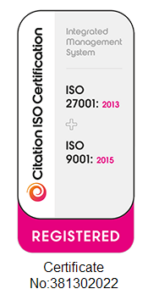Why Virtual Meetings Might Be More Equitable
“Quiet people have the loudest minds.” – Stephen Hawking
It just may be that the virtual advisory board meeting allows for a more equitable space than an in-person meeting.
That might sound like a fairly sweeping statement but consider a typical ad board meeting. You have around 15 delegates and among those there are one or two ‘Rockstar’ key opinion leaders. These individuals will tend to dominate the discussion and your quiet delegates often say very little, although they very likely have valuable contributions to make.
However, over the past few months as the meeting world has moved into the virtual space, we’ve found that, anecdotally at least, a broader number of delegates seem to be more involved and engaged than in the physical space.
Why is that? Is it because each person must wait for their moment to speak? Is there an element of group pressure? Are delegates performing for the camera? Does a virtual environment mean there is no place to hide? Or is it the psychology of feeling you want to give something because of the novelty or even because it’s a safer environment (you’re in your own home after all)?
Injecting levity into the virtual space
There is, of course, more to the success of a virtual meeting than the environment. The skill set of the moderator and chair is paramount. To put it bluntly, a boring moderator in the physical space will still be a boring virtual moderator. However, an engaging physical moderator may not necessarily be as engaging online.
Virtual meetings do require a different approach. The chair needs to understand the team dynamics and the way people contribute. After all, the client is contracting with and funding delegates equally, so you don’t want one delegate contributing 90% of the ideas while the remaining delegates don’t get to share their voice. The question is, does the skill set required of a moderator in the virtual space differ from that needed for in-person meetings?
Our experience shows that virtual meetings do require a fresh approach.
You need to inject elements of fun, whether that’s providing a playlist selected by the delegates, or encouraging people to send in selfies. You might need more frequent breaks, and you do need regular icebreakers, such an activity or a poll, to keep people awake.
In a recent meeting, we had a situation where the moderator decided to use some annotations on an image. I’d suggested each delegate draw a line or arrow to show where they are now and where they expect to be in the future. But the way it was explained was slightly confusing and the delegates ended up drawing lines all over the place along with smiley faces and adding their names. The whole situation was so comical that all the delegates – and we’re talking about a group of senior academics – were in fits of laughter. It was one of those water-cooler moments that you typically don’t associate with virtual meetings, but which can happen if you have someone who can help lift the mood.
Since the moderator is likely to be busy managing the meeting, it’s helpful to have a behind-the-scenes meeting director to keep an eye on participation. In an in-person ad board meeting, it’s relatively easy to spot a quiet corner in a physical room, but in the virtual space when the chair or moderator is focusing on whether they can be seen and heard and sharing their slides, it’s harder to keep track of quiet delegates. A coach can alert the moderator to these quiet delegates and have them brought into the conversation, and alert the moderator to any negative body language.
The moderator may also need to adjust their own body language in the virtual space, such as moving forward when a delegate is speaking, making sure they’re looking at the camera and even ensuring their backdrop isn’t distracting delegates.
From our experience, virtual ad board meetings can change the dynamic, giving quieter delegates a safer space to be heard – if the moderator is alert to body language.
Preparation, some light touches, some fun delegate engagement through polls or other icebreakers, regular breaks and the ability to be flexible and adjust the meeting based on delegate feedback are all elements that feed into the success of the virtual meeting.
Leslie Robertson is the Founder of Open Audience, an audience engagement consultancy that specialises in making life sciences meetings more engaging with more positive, successful outcomes – whether in-person or in the virtual space. The Open Audience team helps to strategise and prepare pre- and post-meeting as well as providing real-time support and guidance during the meeting. Open Audience also offers customisable, multilingual engagement platforms that include interactive polling, surveys, and ideas exchange.

